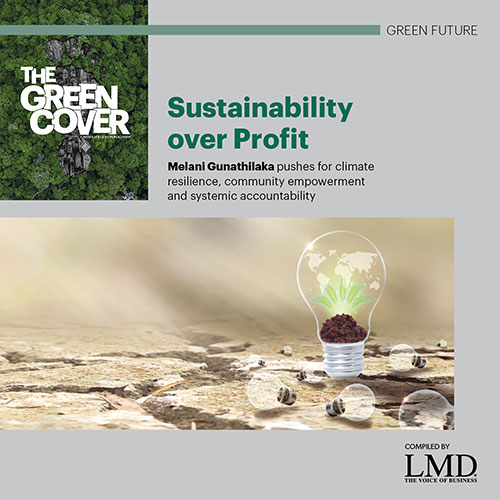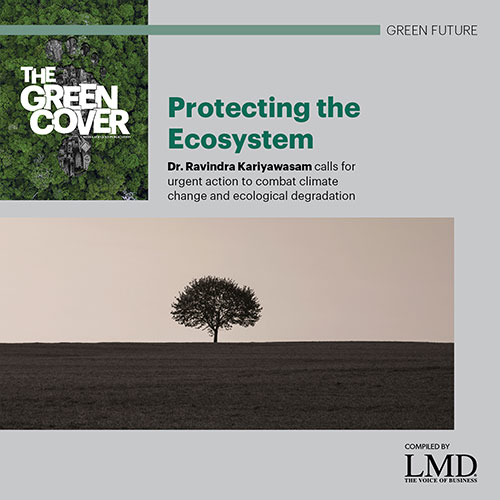CONSERVATION ENDEAVOURS
Conserving Marine Ecosystems
Thushan Kapurusinghe notes the importance of protecting our marine resources
“Global warming is a major challenge for marine and coastal resource conservation, as sea levels are rising and will submerge low-lying areas in Sri Lanka and the world,” states Turtle Conservation Project (TCP) of Sri Lanka Project Leader Thushan Kapurusinghe, who notes that “this will lead to a loss of coral reefs, mangroves, seagrass, sea turtles and more.”
He says: “While El Niño is a natural event that brings warm water to the ocean surface, it can increase coral bleaching due to global warming.”
“Global warming is a major challenge for marine and coastal resource conservation, as sea levels are rising and will submerge low-lying areas in Sri Lanka”
“Small algae cells known as zooxanthellae live within the tissues of coral polyps and help them to survive by supplying food through photosynthesis. In return, the polyps provide a protected environment and nutrients needed for photosynthesis,” Kapurusinghe explains.
He continues: “When the water is too warm, corals expel the zooxanthellae, resulting in the former turning completely white, which is called coral bleaching. Corals do not necessarily die but are stressed and subject to mortality, which will accelerate due to climate change.”
According to Kapurusinghe, beaches are essential for sea turtle nesting activities as female turtles need to land on them to reproduce. Moreover, sea turtles’ sex is determined by the external temperature, which can increase or decrease depending on the weather.
In some areas, the sex ratio can change due to global warming, leading to more female hatchlings and no males to reproduce with, negatively affecting the sea turtle population.
Kapurusinghe stresses that rising sea levels “will change the ecosystem as lagoons are filled with seawater. Mangroves and their communities are vital to marine and coastal ecosystems but some species prefer different levels of salinity. When these levels increase, plants that prefer freshwater vanish, creating problems for ecosystems. Only those that can adapt will survive.”
Commenting on the X-Press Pearl disaster in Sri Lanka, he points out that sea turtles, dolphins and whales were killed but no reports about the cause of their deaths were released.
“Conservation or rapid response groups must be created in all coastal districts as maritime disasters can happen at any time. Locals need to take care of the wildlife until authorities arrive, and sustainable use of marine and coastal resources must be considered,” he says.
“We need more than policies to protect these resources,” Kapurusinghe asserts, adding: “We must actively work with communities in marine and coastal resource conservation, while exploring sustainable alternatives to environmentally destructive practices, and raising funds to support and implement these activities.”








